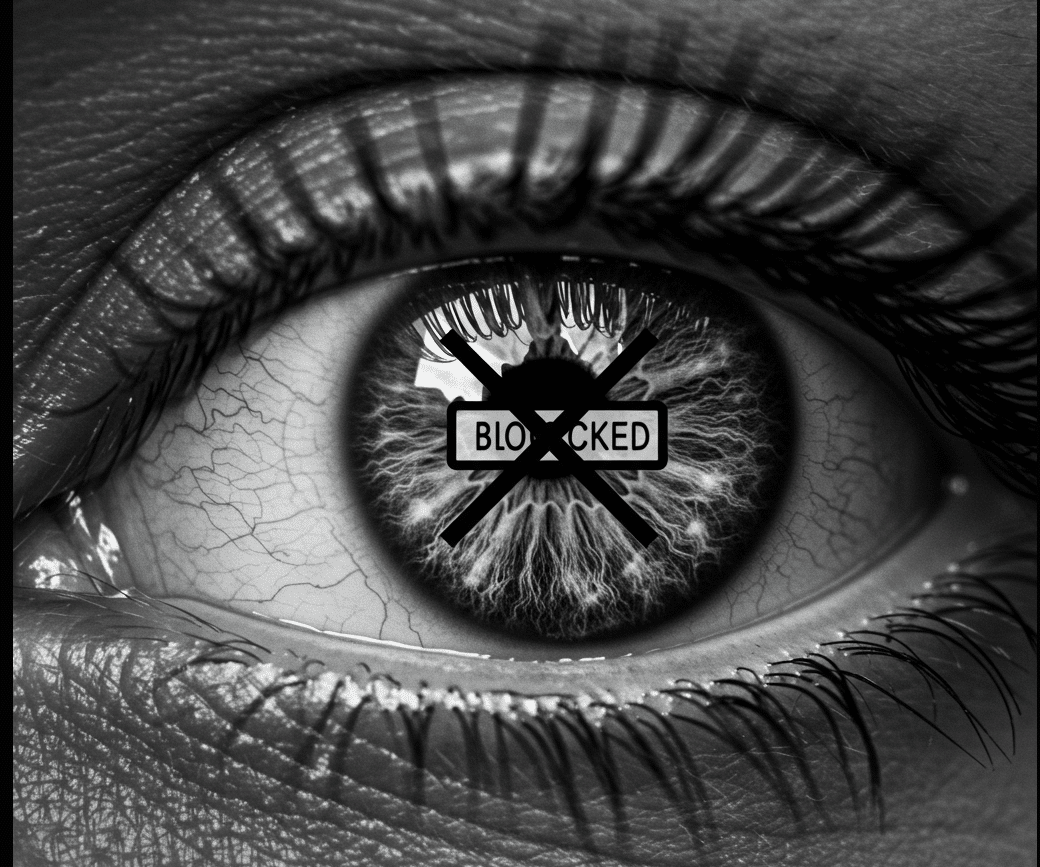Affiliate marketing programs are a great way for marketers and influencers to earn an income — potentially even passive income, if done well. But sometimes, the payout for affiliate marketers can be low, particularly if they’re driving traffic and generating sales for inexpensive products and services.
Going after high-paying affiliate programs is a great way to boost your revenue as a creator. You may have to tap into a more niche audience — and you’ll probably drive fewer sales overall. But the commission percentages from these programs can be high, meaning you can expect substantial payouts.
Below, we’ll define high-ticket affiliate marketing, discuss potential earnings and pros and cons, and review some of the best high-paying affiliate marketing opportunities available this year.
What Is High-Ticket Affiliate Marketing?
High-ticket affiliate marketing is a specialized type of affiliate marketing in which content creators, publishers, marketers, and influencers promote more expensive products and services, often costing $100 or more, in exchange for a cut of the revenue. These higher-ticket items often include luxurious vacations, expensive jewelry and clothing, financial products, business services, and online software for consumers and businesses.
Though it varies by affiliate program, marketers who successfully promote and sell a product or service often earn between 10% and 50% of the sale, known as a cost per acquisition (CPA). The audience for such products and services is typically narrow, and the higher price tags mean fewer overall transactions are likely. However, the payoff can be huge when content creators successfully make the sale.
In some cases, affiliate marketers may earn a monthly commission if they sell a subscription product or service and the customer continues to renew.
Trying to wrap your head around how big of a deal high-ticket affiliate deals can be? Let’s imagine the following scenario:
- Sale price: $700.
- Commission: 40%.
- Earnings per sale: $280.
Though making that single $700 sale might be challenging, the $280 payoff is hard to beat. A typical affiliate pushing lower-value products would need to work really hard to make that much money. For instance, an affiliate selling a $30 product and earning 10% would have to sell nearly 100 units to make the same amount as they would from the single $700 sale.
As you’re looking at possible affiliate programs, don’t forget to check cookie duration. The longer it is, the longer you’ll get credit for a click-through from your site. As you’ll see from our 14 best programs below, cookie duration can vary widely.
How Much Can High-Ticket Affiliate Marketers Make?
How much high-ticket affiliate marketers make depends on the products and services they promote and their success in converting their audience to buyers. That said, ZipRecruiter offers some data on high-ticket affiliate marketer earnings: $47,500 a year.
That’s not the maximum you can make through high-ticket affiliate marketing — it’s simply an average. Plus, affiliates generally have plenty of other revenue streams related to their content, such as promoted posts, native ads and display ads on their website, and video ads on YouTube videos.
Pros and Cons of High-Ticket Affiliate Marketing
Not sure if high-ticket affiliate marketing is right for you? Weigh the pros and cons before moving forward:
Pros
- More money: The number-one reason to jump into the world of high-ticket affiliate marketing is because you can make money — a lot of it. With larger commissions for high-dollar items, content creators and influencers can expect to make more money with a single sale than they could with dozens of sales of lower-priced items.
- Recurring commissions: Some high-ticket products and services are subscription-based, meaning you’ll continue to make money without any extra effort each month or year the customer you converted renews.
- Less competition: In some highly specialized niches, you may be one of a few experts. This means there’s less competition for your audience’s attention, and thus a higher chance that your content is what will convert them into buyers.
Cons
- Fewer sales: When promoting luxury products and expensive services, you’ll likely make fewer sales than you would for lower-priced items — and there may be longer periods with no earnings.
- Barriers to entry: Companies that use content creators and influencers to market high-ticket products set strict eligibility requirements. You may need to have a certain reach with a specific type of audience to join the program, and the reach may be channel-specific.
Unlock measurable outcomes with Realize, the performance marketing platform built for affiliates seeking to scale beyond Search and Social.
- Customer expectations: If you tell your loyal audience to use an expensive product or service, they’ll have high expectations. You need to make sure the item you’re promoting is actually worth the cost or risk losing the trust of your audience, which you may have spent years building.
- Niche products: High-paying affiliate deals don’t exist for everyday products. They’re often for complex software and financial products, luxury jewelry and fashion products, and expensive travel. As a content creator, you must have a deep understanding of the niche industry, products, and services and make sure your audience sees you as an expert in that field before you can make sales at scale.
14 Best High-Ticket Affiliate Marketing Programs
Ready to join a high-ticket affiliate program? Here are some of the best high-paying affiliate marketing programs in 2025:
1. Semrush
Digital marketers use Semrush every day to help their content rank on search engines like Google; in fact, you may use it for your own website. The platform helps digital marketers make decisions about keywords, generate content ideas, and find out what competitors are doing. If you are accepted to its affiliate program, you can earn commissions by referring customers to Semrush.
- Who should apply: Content publishers, marketing agencies, course creators, video creators, and marketers who focus on SEO and marketing content.
- Commission: Up to $200 per sale, plus $10 for every free trial; bonuses and commission increases available for successful affiliate marketers.
- Cookie duration: 120 days.
2. Tripadvisor
If you write about travel, becoming a Tripadvisor affiliate marketer is a great way to make extra money. You’ll receive a percentage of Tripadvisor’s commission every time you send someone to the Tripadvisor website and they click to a hotel partner — even if they don’t book.
- Who should apply: Content creators focused on travel.
- Commission: At least 50% of the commission Tripadvisor receives from hotel booking partners when you refer your audience to Tripadvisor and they click to partners.
- Cookie duration: 14 days.
3. Skimlinks
Skimlinks, a Taboola company, gets you access to more than 48,500 affiliate programs in one place. The service allows you to automate content monetization for editorial teams and helps you reduce your reliance on display ad revenue on your website. Qualifying with Skimlinks is easy for those new to blogging and publishing as well as for experienced veterans, and you can make good money through the program.
Skimlinks offers the best of both worlds: You’ll have access to more affordable products and services that you can monetize for quick, easier conversions, but you can also get affiliate links to luxury, high-ticket items.
- Who should apply: Bloggers, website owners, and editorial teams who want to monetize content
- Commission: Varies by merchant; affiliates earn 75% of the commission
- Cookie duration: Typically 30 days but varies by merchant
4. FreshBooks
FreshBooks is a popular accounting and invoice platform designed for small businesses. Content creators earn commissions not just for purchases of a paid plan, but even for trial signups.
Note that the FreshBooks program is managed by ShareASale, an affiliate marketing portal, which can complicate customer support and approval.
- Who should apply: Content creators with a website that has relevant content and whose primary promotion method is content marketing; must be accepted by ShareASale.
- Commission: Up to $10 per free trial; up to $200 per “paid subscribe.”
- Cookie duration: 120 days.
5. Kinsta
Kinsta is a well-respected WordPress hosting company. This is a great market to be in, as WordPress is used across 43.7% of all websites, according to W3Techs. This means you can market to nearly half of the world’s website builders.
Here’s what you need to know:
- Who should apply: Developers, designers, agencies, owners, and publishers with content about web hosting, as well as learning platforms and tech solutions providers.
- Commission: Up to $500 for each referral, plus 10% of monthly plan fee for all referrals as long as they remain customers.
- Cookie duration: 60 days.
6. Shopify
More than a quarter (28%) of all U.S.-based e-commerce sites use Shopify to sell products online, according to recent data from Built With, but Shopify is also available as a point-of-sale platform. Content creators whose audience consists of company decision-makers and entrepreneurs looking for products and services to power their businesses will do well selling both the Shopify store plans and point-of-sale hardware.
- Who should apply: Content creators targeting entrepreneurs; must have a website and an established audience that consumes the creator’s content, such as online courses, guides, and videos.
- Commission: $25 to $150 for full-priced plan referrals; up to $500 for POS Pro referrals.
- Cookie duration: 30 days.
7. MasterClass
If you’ve ever been eager to teach yourself something new, you’ve probably stumbled upon MasterClass, a platform where people can find courses taught by famous people and experts in their field. If you create content focused on education, this could be a good fit, especially since individual plans range from $120 to $240 a year.
Unlike many other high-paying affiliate programs (including most of those on our list), MasterClass requires that you sign up through Impact Radius.
- Who should apply: Content creators with a website or social media presence focused on education and online courses.
- Commission: 25% per sale.
- Cookie duration: 30 days.
8. ClickFunnels
ClickFunnels helps marketers and entrepreneurs build landing pages that convert. If you create content designed to help businesses and marketers, particularly online, you could earn some serious cash by becoming a ClickFunnels affiliate.
- Who should apply: Content creators focused on educating marketers and entrepreneurs.
- Commission: 30% recurring commission over the lifetime of the customer.
- Cookie duration: 45 days.
9. DreamCloud
DreamCloud is a high-end, luxury mattress brand known for its comfortable hybrid mattresses, backed by a 365-night trial and lifetime warranty. If you create health content, particularly if it’s focused on sleep — or you have a review site focused on mattresses, sheets, and pillows — you can make a lot of money on each mattress sale.
Like Masterclass, DreamCloud runs its affiliate program through Impact Radius.
- Who should apply: Reviewers and content creators focused on health and sleep.
- Commission: $150 per mattress sale.
- Cookie duration: 30 days.
10. James Allen
Do you run a fashion blog or love talking about jewelry on your Instagram or TikTok? The James Allen affiliate program could be a great match. You’ll earn small commission percentages, but James Allen is a reputable, high-end jeweler that can charge high prices for its products — so you’ll still get high payouts.
- Who should apply: Content creators and influencers who focus on fashion or jewelry, or who often plug their outfits when creating other types of content, such as travel and lifestyle; influencers must have a minimum 3% engagement rate and at least 3,000 followers.
- Commission: 5%.
- Cookie duration: 30 days.
11. Fiverr
As a content creator, you may have found work on Fiverr yourself, making you the perfect candidate to promote its services (if you liked them!). Fiverr connects businesses with freelancers across various disciplines, including copywriting, design, digital marketing, programming, and music and audio services.
As an affiliate, you can promote Fiverr (the marketplace for which the brand is best known), Fiverr Pro, and Logo Maker. Each product has its own commission structure.
- Who should apply: Content creators, digital entrepreneurs, solution providers, online educators, marketers, and agencies — if the content produced is relevant to Fiverr services.
- Commission: 25% to 100% of customer’s first order, then 10% revenue share for all future orders for 12 months.
- Cookie duration: 30 days from first click.
12. HubSpot
HubSpot is a popular CRM platform for businesses to manage sales, marketing, customer service, and more. If you design content aimed at business decision-makers, you’re likely a good fit to promote HubSpot’s software.
- Who can apply: Software reviewers, content creators, online educators, and business solutions that integrate with HubSpot — must create content aimed at business pros.
- Commission: 30% recurring submission (up to 1 year); “Super” and “Elite” affiliates can earn more.
- Cookie duration: 180 days.
13. AuthorityHacker
AuthorityHacker is an industry leader in developing online courses to help beginners build authoritative websites that turn a profit. You can get big one-time commissions when you refer your audience to their program, and you can continue to earn revenue as long as your referrals stick with the courses. Commissions increase as you make more sales.
Note that you must make at least one sale in the first 90 days to remain in the program.
- Who can apply: Content creators with a website, mailing list, or social media account with high traffic or a high subscriber or follower account — and that audience needs to be relevant.
- Commission: Up to $1,500.
- Cookie duration: 60 days.
14. PureVPN
Growing concern around privacy issues is leading to a surge in the popularity of PureVPN. If you’re focused on privacy and data security, PureVPN could be a good way to make money, especially since it offers excellent commissions on new signups and referrals.
- Who should apply: Content creators and influencers focused on data privacy.
- Commission: 100% for new signups and 35% renewals for monthly plan; 40% for new
- signups and 35% renewals for yearly plan and two-year plans.
- Cookie duration: 90 days.
How to Get Started With High-Ticket Affiliate Marketing
Getting started with high-ticket affiliate marketing takes some work. Before you’ll qualify for the typical high-paying program, you need to establish yourself as an expert in that niche industry, with an engaged audience on your website, social channels, or other online platforms where through which you can diversify, scale, and maintain your CPA goals.
See how Publicis Media lowers CPA by 14% for Peugeot
If you’ve cultivated the right following and are an industry expert, research the best high-paying affiliate programs in your niche, sign up, and start creating great content for your audience that converts. Be careful, though: The primary purpose of your content should be to help your audience, not to make a sale. You could lose valuable readers and followers if you push sales of poor products or services, or if your content doesn’t meet your audience’s needs.
Frequently Asked Questions (FAQs)
Is high-ticket affiliate marketing hard?
Yes. High-ticket affiliate marketing requires specialized knowledge about specific products and services in niche markets. Plus, companies with affiliate programs typically want to see that you’re an authority in their niche with the proven ability to convert. Because of the higher price tag for products and services, it’s also harder to get your audience to move forward with a purchase, a challenge addressed with a few affiliate marketing tools on the market today.
What is the highest-paying affiliate program?
The highest-paying affiliate program depends on the product. Companies that offer high commissions, and have several high-value products or services, include AuthorityHacker, HubSpot, MasterClass, Semrush, Shopify, and ClickFunnels.
What is the most profitable affiliate niche?
Technology and software represent some of the most profitable affiliate opportunities. However, you can also earn a lot of money through affiliate programs for financial products, travel, fashion, and jewelry.



